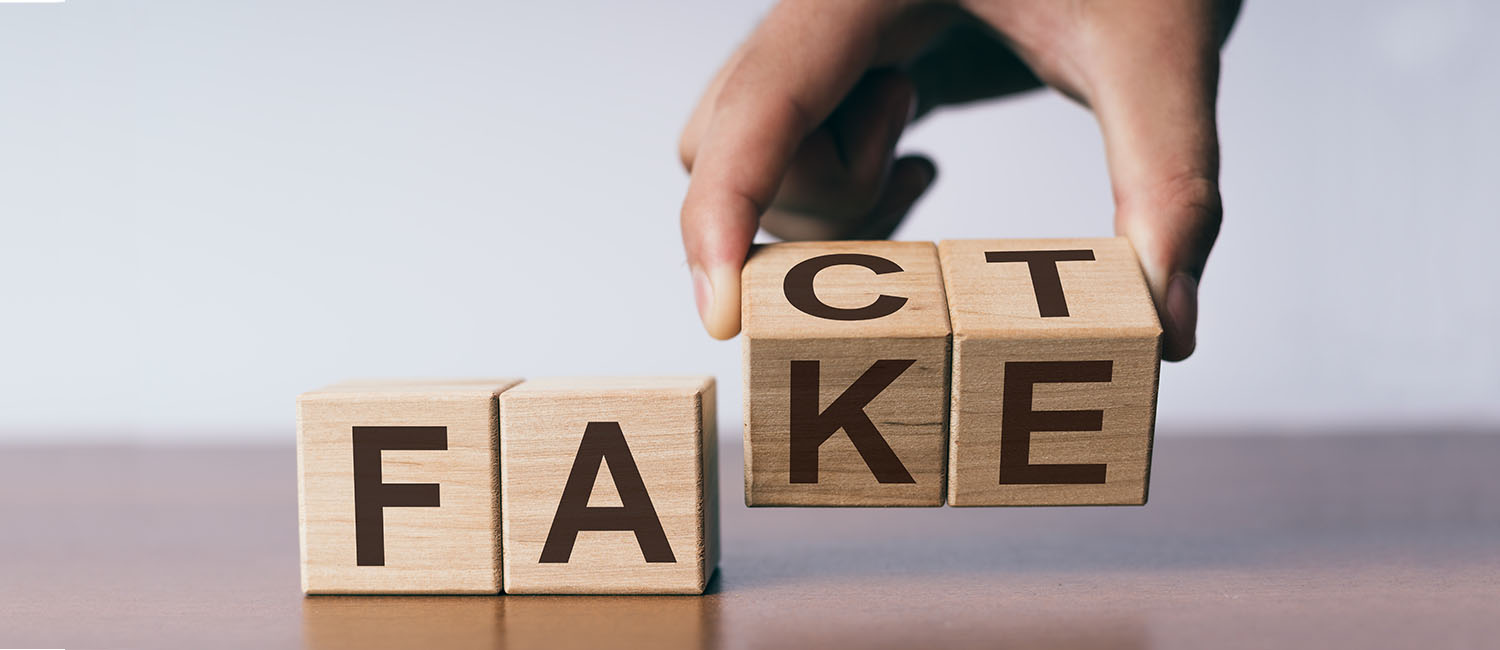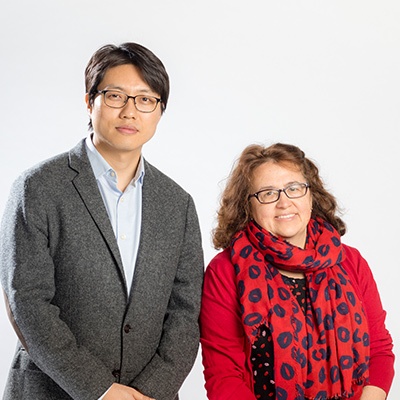
The battle against fake news
Maria Haigh, an associate professor in the School of Information Studies, types into thin air, mimicking news trolls. “They’re working in shifts nonstop,” says Haigh, who studies internet trust and fake news. “It’s a machine.”
Haigh’s campaign for truth is personal. Her family lived through the 2013-14 unrest in Ukraine and the subsequent revolution that was widely acknowledged as having been sparked by Russian political interference. “The same,” she says, “has happened in the United States.”

She recently collaborated on a project with Wonchan Choi, an assistant professor in the School of Information Studies who specializes in the credibility of online information. Their focus: improving how to spot and expose bogus news by exploring fact-checking methods in the United States, Korea and Ukraine.
Haigh researched the history, work practices and reach of the Ukrainian online fact-checking organization StopFake.org, which she uses as a test case for journalistic responses to state-sponsored disinformation campaigns. That includes partisan messaging of dubious origin meant to influence elections, stir hostility and undermine faith in institutions like the media. She interviewed fact-checkers and investigated how they countered fast-moving propaganda.
“Western journalism is just not ready for this,” she says of the tsunami of online fake news. She says the most common counterattack – thorough fact-checking of stories – isn’t working. “You read the fact-checking article’s results; it’s detailed, it’s nuanced, it’s boring,” she says. Moreover, the corrective articles reach far fewer readers than the original erroneous ones that went viral.
“The people who are making things up, they know how to get the audience because they know what works on the emotional side,” Haigh says. “It’s monetized. It’s ideology and profit together.”
Such practices aren’t limited to politics. Choi’s research also focuses on web-based health information. He says it’s fraught with myth, along the lines of, “If you eat it, then you will be healthy, or you can cure cancer if you eat it.”
The professors identified several credibility markers to look for in online news, including identifiable sources, expert analysis and commercial intent. Further, they suggest legislators could help future voters by implementing school standards.
“If it’s part of a child’s education,” Choi says, “it becomes a habit, a way of life.”